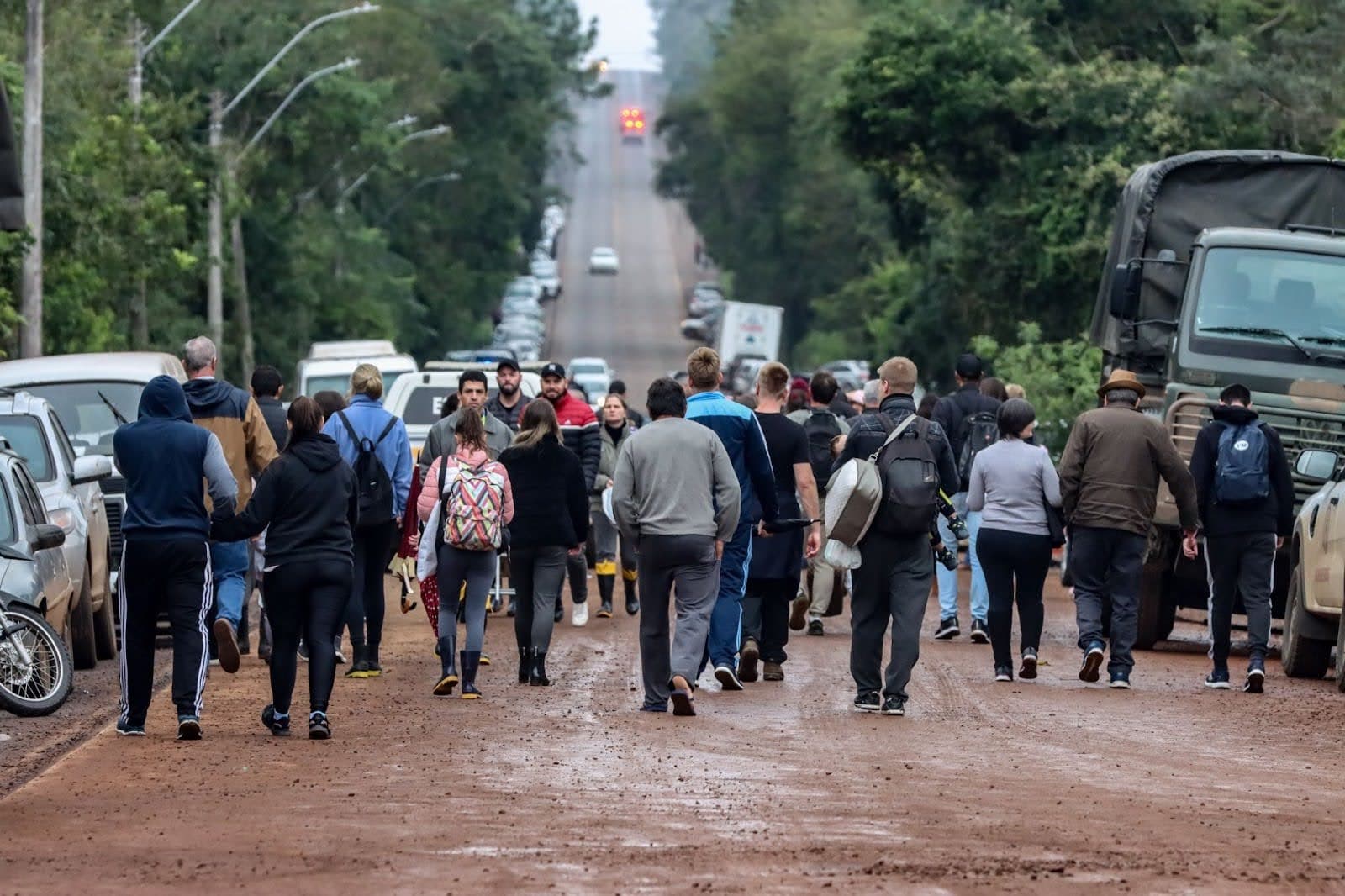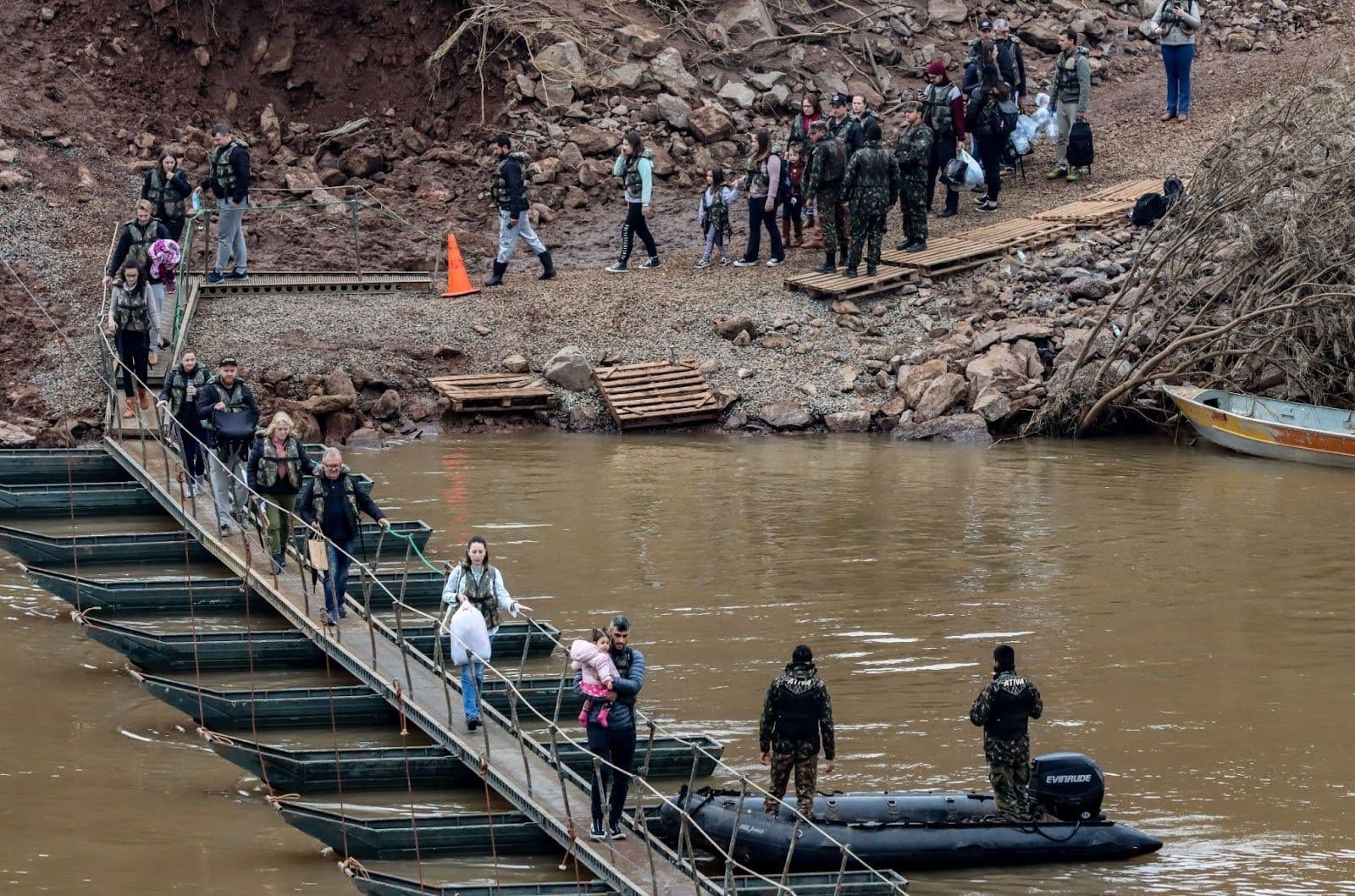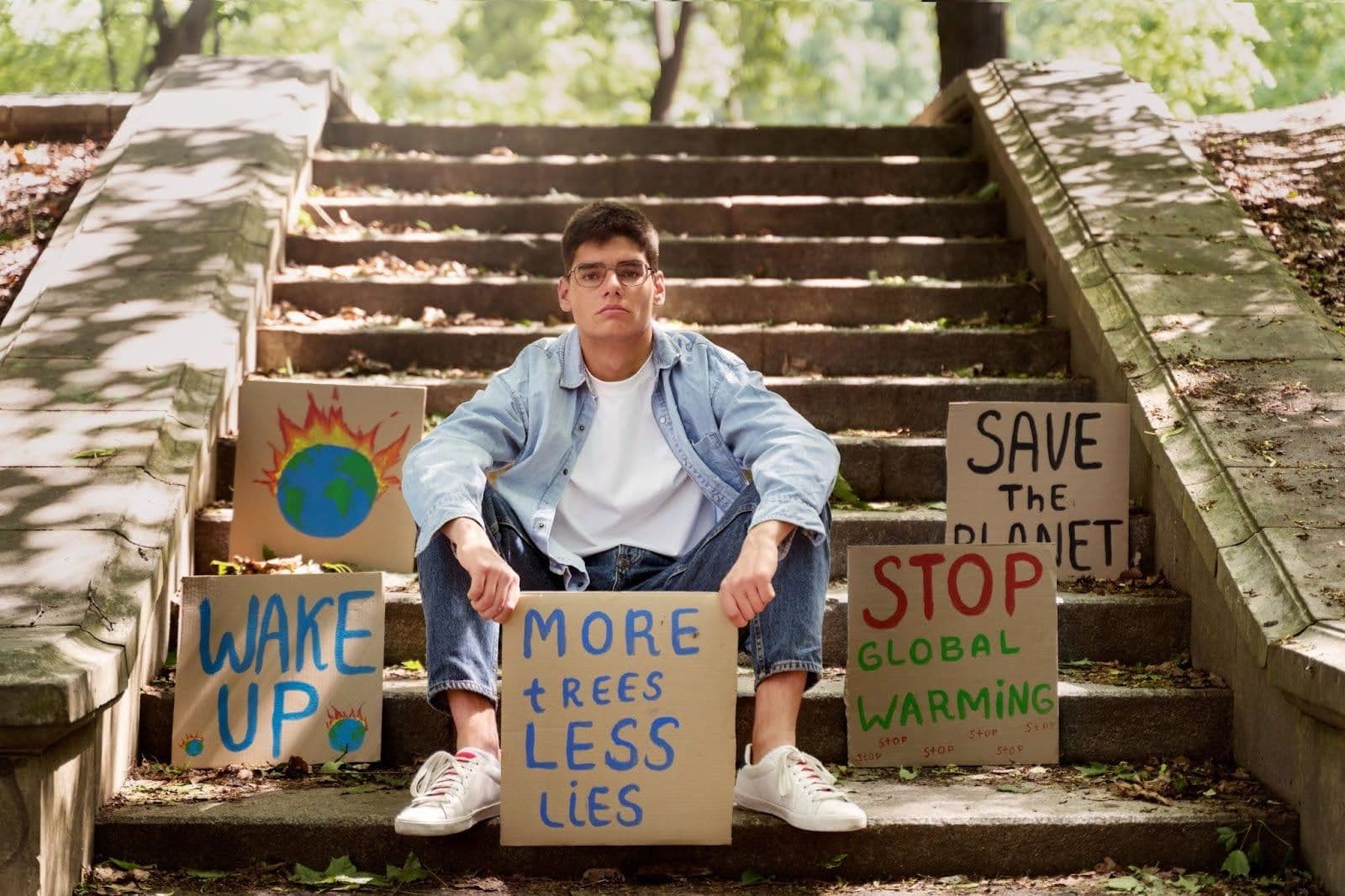
23/05/2024
Climate Adaptation and Climate Refugees – Global Issues, Specific Discussions. Are We Prepared?
By Isabela Bonatto, Ambassador of the Circular Movement
Nothing compares to the power of nature," humans say in the face of natural disasters and/or climatic phenomena. Planet Earth can indeed be a cruel maestro, capable of redefining the course of its inhabitants' lives with an indomitable fury.
The tragic floods in Rio Grande do Sul bring with them, sadly, a troubling warning of phenomena that could occur in other parts of Brazil and the world as the impacts of climate change intensify, in parallel with urban development lacking proper environmental concern.
Many important questions arise: Are we prepared for climatic events? Do we have the available technologies? What should be done for the displaced? Are we failing in urban planning? How should the government act? Brazilians continue debating on the Internet, including trying to find culprits, questioning the actions (or inactions) of policies and politicians, and the relationship of these events with climate change.
A few years ago, the term "climate adaptation" seemed futuristic, something we didn't need to think about soon. The current generation, with a mix of denialists or optimists, often shows that they do not believe what is happening, thinking that such things simply "happen" on Earth and that we cannot prevent them.
I might agree that there are certain things we cannot control, but we urgently need to talk about climate adaptation. We need to discuss what can be done (and should be done), such as data monitoring, improvement of early warning systems, investment in climate-resilient infrastructure, preservation of natural ecosystems (forests, wetlands, and other natural ecosystems that help regulate the climate and reduce disaster risk), and reduction of greenhouse gas emissions. We can no longer avoid this if we want a future that is not so "uncomfortable.

Technology is a powerful tool that can be used to accelerate and expand climate adaptation efforts, but it is not a magic solution. It needs to be used in conjunction with other measures, such as public policies, behavioral changes, and investment in social infrastructure.
Beyond the importance of the technical and scientific aspects of climate adaptation, there is also a social and humanitarian dimension. Worldwide, 376 million people were forced to leave their homes due to climate-related events between 2008 and 2022, according to a survey by the Internal Displacement Monitoring Centre.
On Tuesday, May 14, 2024, the International Organization for Migration (IOM) released the latest report from the Internal Displacement Monitoring Centre (IDMC), indicating that displacements caused by extreme climatic events and other natural disasters surpassed those caused by wars, repression, and violence in 2023.
According to the report, “disasters such as Cyclones Freddy and Mocha and wildfires in Canada, as well as the earthquake in Turkey and Syria, resulted in the internal displacement of 26.4 million people in 2023. This number represents 56% of the total displacements (46.9 million) and exceeds by more than six million those caused by conflicts and political persecution.”
Brazil ranks among the six countries with the highest number of people displaced due to natural disasters. According to the IOM, the country recorded 745,000 displacements, behind only China (4.7 million), the Philippines (2.5 million), Somalia (2 million), Bangladesh (1.7 million), and Myanmar (995,000).
As a Brazilian living in an African country, I also have to say that I feel a lack of connection: Despite the globalized nature of the world today, environmental and climatic issues in countries in Africa and Asia are often underreported to the rest of the world.
Sometimes I feel like each region is trying to deal with its own current problem, scrambling to catch up, while global discussions on these topics are still in their infancy. It's also worth noting that rural areas, disadvantaged and poor populations, developing countries, small island states, and densely populated coastal cities have the most vulnerable populations and the least capacity to withstand the impacts of nature and climate. This highlights climate injustice, another important issue within this context.
The historic rains in Rio Grande do Sul may trigger one of the largest climate migration events in Brazil's recent history. Entire communities will need to be relocated to safer areas, with urban infrastructure re-planned and critical thinking applied to new developments.

Climate-related issues and migrations also reveal another facet of how climate change can affect human security, such as problems related to resource availability, food and water security, which can exacerbate tensions that fuel poverty, violence, and conflict.
The consequences of climate change are global and interconnected, so it is crucial for governments and communities to take steps to prepare for extreme weather events and to build long-term resilience. Prevention is better than cure, and unfortunately, we are paying a high price for not taking care of the planet's health.
We urgently need to broaden global discussions and interconnect knowledge and experiences, expand disaster risk reduction, support peacebuilding, ensure the protection of human rights, and whenever possible, prevent emergency displacements. We must focus efforts on early action, prevention, and preparedness to face these situations and minimize their effects. It is also crucial to invest in programs supporting climate refugees, providing them with shelter, food, clean water, and access to health and education services.
The term "climate refugee" is not yet legally defined in international law, which complicates discussions regarding the application of rights and protections that traditional refugees have. It is essential to ensure that climate refugees have their human rights guaranteed and that they can participate in building a more climate-resilient future. The international community needs to take urgent measures to address this group, including developing policies to protect them and help them adapt to the impacts of climate change.
Regional climate events and climate refugee crises should serve as an urgent reminder of the need for global action to address climate change. We need integrated action in sustainable development in the areas of migration, the environment, and climate change.
Who is Dr. Isabela da Cruz Bonatto:
Ambassador of the Circular Movement. She holds a Ph.D. and a master's degree in Environmental Engineering from the Federal University of Santa Catarina. She has an MBA in Environmental Management from the Federal University of Paraná, and a bachelor's degree and teaching degree in Biology (PUCPR and UTFPR). She is a socio-environmental consultant, with a focus on solid waste management, promotion of Circular Economy, and corporate sustainability. She has experience with government sectors, private companies, community organizations, NGOs, and international institutions (UNEP). She has been living in Kenya since 2021 and is a board member of the "Together for Better" Foundation, promoting circular economy and female empowerment initiatives.
Interested in the topic?
Here are some suggestions for further reading:
- IPCC: Climate Change 2022: Impacts, Adaptation, and Vulnerability: https://www.ipcc.ch/report/ar6/wg2/
- UNFCCC: Migration and Climate Change: https://unfccc.int/process-and-meetings/what-is-the-united-nations-framework-convention-on-climate-change
- UNHCR: Climate Change and Refugees: https://www.unhcr.org/what-we-do/build-better-futures/climate-change-and-displacement
- Climate Adaptation Technologies Center: https://www.ctc-n.org/
- Green Climate Fund: https://www.greenclimate.fund/
- UNHCR: https://www.acnur.org/portugues/2020/12/10/a-mudanca-climatica-e-a-crise-de-nosso-tempo-e-impacta-tambem-os-refugiados/

